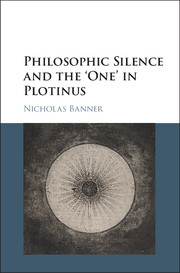Book contents
Conclusion
Published online by Cambridge University Press: 16 March 2018
Summary
The thesis of Odo Casel was that the cultural trope of silentium philosophorum in antiquity was in large part a transference over time of religious arcana – actual doctrinal secrets, and the culture of secrecy surrounding them – to the idea of an ineffable reality which could not, by its own nature, be revealed. The evidence traced in the present volume supports this analysis in many respects. There is however an important proviso: for Casel, and most scholars after him, the late antique philosophic use of the themes of mystic silence and other rhetorics of concealment and secrecy was entirely metaphorical. The mystic arcanum stood for the ineffable first god.
I would argue that this is too simple, and ignores what written secrecy and written silence have in common: they both advertise a truth to which the author is privy and the reader is not. Throughout the history of philosophic secrecy, concealment was rarely the main aim, but rather revealing the existence of privileged knowledge on the part of the philosopher. The act of written hiding and revealing applies equally well to the hidden arcanum which must be kept from the uninitiated and the openly announced, but ineffable, reality.
Discussing the interference between secrecy and ineffability found in Plotinus, Jean Pépin poses the question, without answering it, of why and how one would guard against communicating the incommunicable, and whether it makes sense to forbid the impossible. It is hoped that this book has posed some answers to the ‘how’ part of the question: forbidding communication of the ineffable should be understood as an exercise of rhetorical hiding and revealing, part of a long Platonist tradition of treating the highest matters of philosophy as ‘secret knowledge’. Even in the earliest sources cited in this book, such as the mysteries and the Presocratic poets, the concerns of secrecy are at least as much to do with identity and exclusion and with the identification of the ‘mystery’ as a mystery as with the concealment of genuine secrets. Keeping this in mind, the seeming paradox of the Plotinian move to conceal the ineffable should become less inexplicable. Platonist philosophic silence has its own internal logic, but this logic only makes sense if we cease to imagine that the exercise of secrecy either implies secrets or even necessarily requires the presumption that there are secrets.
- Type
- Chapter
- Information
- Philosophic Silence and the ‘One' in Plotinus , pp. 241 - 250Publisher: Cambridge University PressPrint publication year: 2018



